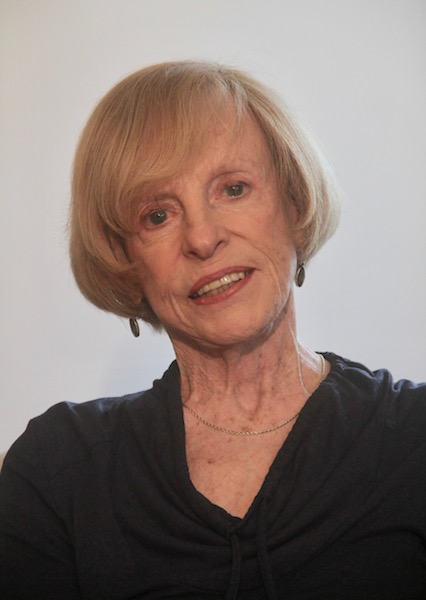One night when I was nine years old, when the stars and moon were shining brightly, my mother took me to the window and read the first verses of the 19th Psalm to me. That was a long time ago, so the version I heard was the King James, which is still, despite its inaccuracies (about which more in a minute), the translation I like to read. I was, as we would say now, blown away. I had heard and loved music all my short life, but I had never heard anything as beautiful as that Psalm. I didn’t know then that I was hearing poetry; I thought poetry had to rhyme.
It was some years before I learned that it’s not rhyme or even meter (though there are accentual patterns) that create music in Hebrew poetry; it’s parallelism, with grammatical units appearing in pairs, usually, but sometimes in threes—a kind of call and response, if you will, with a second sentence, clause, or phrase echoing a first, usually complementing or intensifying (as in most of this Psalm), sometimes contrasting, sometimes narratively expanding. That was the music I heard: “The heavens declare . . . the firmament sheweth”; “Day unto day . . . night unto night”; “Their line is gone out through all the earth, and their words to the end of the world.”
I wasn’t sure what firmament meant, or “line” in this context, but that was okay: I could imagine. Nor, of course, was I aware that a good deal had been lost or misconstrued in translation. But I was, even then, captivated not only by the music, but also by those words that were actually about words, the idea that what I could see but not hear was speaking: I didn’t know the “heavens” could do that, and I didn’t know you could say that they could. And I didn’t know that saying they could was poetry.
Although some scholars argue that it is made up of two or even three separate texts, Psalm 19 is, in its entirety, about language: the middle section references the literal words of scripture (law, testimony, statutes, commandment), and the poem ends with a prayer that beautifully varies the syntax and includes the poet’s wish for his own words: “Let the words of my mouth. . . .“ Although it’s the opening section that most holds my attention, I love the movement and cadences of the whole Psalm.
As a child, and in fact until quite recently, I read the third verse as referring to all the languages of the world. “The heavens declare the glory of God”—and then: “There is no speech nor language, / where their voice is not heard.” I didn’t know then that there were no Hebrew equivalents for words my Bible printed in italics. But when I discovered that “where” had been added, I was astonished. Exploring further, I discovered that it wasn’t until the early twentieth century that we began to get more accurate translations that say almost the opposite of what the King James and earlier translations appeared to say. And what they give us is a poetry that’s even more profound than what I heard as a child: “There is no speech nor language. Their voice is not heard”: no speech, no language, no voice. And then: “their words” go out “to the end of the world.” In this wonderfully vocal, gorgeously musical Psalm, the third verse speaks of silence—a silence that speaks.
C. S. Lewis declared this Psalm to be “the greatest poem in the Psalter and one of the greatest lyrics in the world.” I can, and have, traced my passion for poetry to this poem; it’s also given me titles for two books, Day Unto Day and Night Unto Night. And like all great poetry, the Psalm keeps speaking to me—in its words and in its silences.




